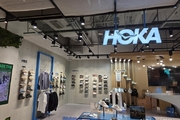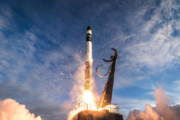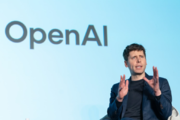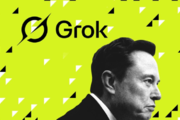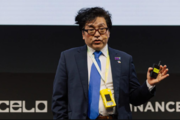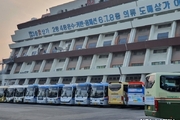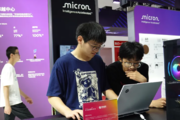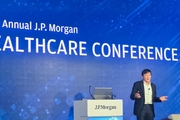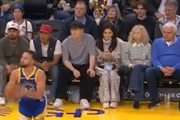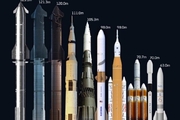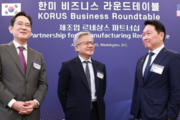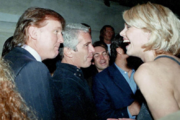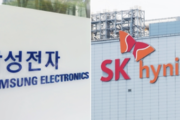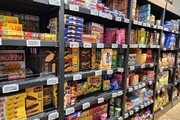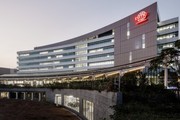
[News Space=Reporter seungwon lee] Royal Canin Korea Ltd. (CEO Kaisia Dong), the overwhelming leader in the domestic pet market, reported double-digit growth in sales, operating profit, and net profit last year.
According to the Financial Supervisory Service's electronic disclosure system audit report on the 7th, Royal Canin Korea's sales in 2024 increased by 14.3% to KRW 370.9 billion compared to KRW 324.4 billion the previous year. Operating profit also soared by a whopping 43% to KRW 58.5 billion compared to KRW 40.9 billion the previous year. The operating profit ratio also recorded a good performance at the level of 16%. Net income also increased by 24% to KRW 53.8 billion compared to KRW 43.4 billion the previous year.
Royal Canin has been criticized by consumers for raising product prices in February despite its impressive performance with double-digit growth in sales, operating profit, and net profit. Some are saying that the price increase was ultimately to pay more dividends and royalties to the company.
The average price increase was 4.8%, and was applied to the entire product line, from general feed to prescription feed.
A Royal Canin official said, “We tried to internally digest external cost increases such as inflation, but decided to adjust prices to ensure business continuity,” adding, “We minimized the increase amid pressure from rising production costs such as raw materials, packaging, and transportation.”
Royal Canin Korea Ltd. was established on September 16, 2005 and is engaged in the main business of feed manufacturing and wholesale, with its headquarters and factory located in Baeksan-myeon, Gimje-si, Jeollabuk-do. The current paid-in capital is 500 million won, and Royal Canin SAS owns 100% of the shares.
Sales and administrative expenses amounted to KRW 64.6 billion, of which KRW 10.1 billion was in salary expenses, KRW 10.9 billion in advertising and publicity expenses, KRW 15 billion in commissions, and KRW 17.7 billion in royalties.
The royalty of 17.7 billion won is equivalent to 9% of the domestic sales of the controlling company, Royal Canin SAS, and is a 13.5% increase from 15.6 billion won the previous year.
As dividends, 25 billion won was paid out in the form of an interim dividend in 2023. This amount is a very high ratio of 5,000% compared to the capital of 500 million won. This means that Royal Canin has considerable cash liquidity and has adopted an active profit return policy to the parent company, which holds 100% of the shares.
Royalties and dividends totaling 42.7 billion won were paid to Royal Canin SAS, the headquarters of Royal Canin Korea.
Another internal risk is that the company is overly dependent on affiliates. 42% of all purchases were transactions with the parent company. The repayment of short-term debt of 20 billion won is also a burden. The return reserve liabilities increased by 20% to 1.4 billion won from 1.15 billion won the previous year. This shows the intensifying competition in the domestic animal feed market.
The debt ratio was 49.2%. Total liabilities were 101.5 billion won, and total capital was 206.1 billion won. The current ratio was also 104.8% (current assets 106.2 billion won, current liabilities 101.3 billion won), indicating that short-term liquidity is also good.
The current assessed value of the land owned by Royal Canin is 8.78 billion won. In addition, it received 6.1 billion won in government subsidies from the Jeonbuk Provincial Office and Gimje City Hall in May 2018 and December 2018. Of the government subsidies, 6.09 billion won and 14.12 million won were recorded as deduction accounts for tangible assets and intangible assets, respectively.
In addition, investments are being made in buildings and machinery to expand Gimje Factory Lines 3 and 4, and the total investment amount is 97.8 billion won.
Cash flow also improved significantly. Operating cash flow of 65.5 billion won was generated.
The legal representative director of Royal Canin Korea is David Cai, President of Royal Canin Asia Pacific, and Jae-Yeon Lee, the Korean branch manager, has been in charge of the Korean business since September 2024.
Lee Jae-yeon, the Chief Business Officer, majored in marketing at Indiana University in the United States, and has extensive experience in global companies such as Coca-Cola, Johnson & Johnson Korea, and Asia Pacific headquarters, as well as in Korea, North Asia, and Asia Pacific marketing, and as the head of the Korea branch. He joined Royal Canin Korea in August 2022 and served concurrently as the Brand Marketing and Retail Sales Director.
As a result of analyzing the performance reports of the top 5 pet food companies in 2024, including sales and operating profit, Royal Canin Korea (KRW 370.9 billion) is in an overwhelming lead, followed closely by Korea Mars (KRW 183.2 billion), Daejoo Industrial (KRW 106 billion), Woori (KRW 92 billion, merger of Daesan & Company and Daehan Feed), and Harim Pet Food (KRW 52.1 billion, physical division of Jeil Feed's pet food division).
A pet food industry insider said, "Considering that the Korean affiliate of the French Mars Group is Mars Korea and that the Mars Group's affiliate is Royal Canin, the sales of the first and second largest pet food companies alone are worth 554 billion won, and in this harsh reality, imported products dominate more than 70% of the Korean pet food market. As such, the competition between Shinto Buli brands, which also have excellent product capabilities, is set to intensify."
Meanwhile, as the pet population reaches 10 million, the related market size is also growing rapidly. According to the '2024 Korean Pet Food Market Forecast' data from the Korea Pet Food Association and Nielsen IQ Korea data, the annual sales of the Korean pet food market is approximately KRW 900 billion. This is a similar figure to the domestic toilet paper sales.
According to the Korea Rural Economic Institute, the pet market size in 2023 will be approximately KRW 4.5786 trillion, more than doubling from KRW 2.6 trillion in 2018. The pet food market size is expected to be KRW 1.1803 trillion. Euromonitor International, a global market research firm, predicted that the global market size will reach USD 184 billion (KRW 255.37 trillion).




